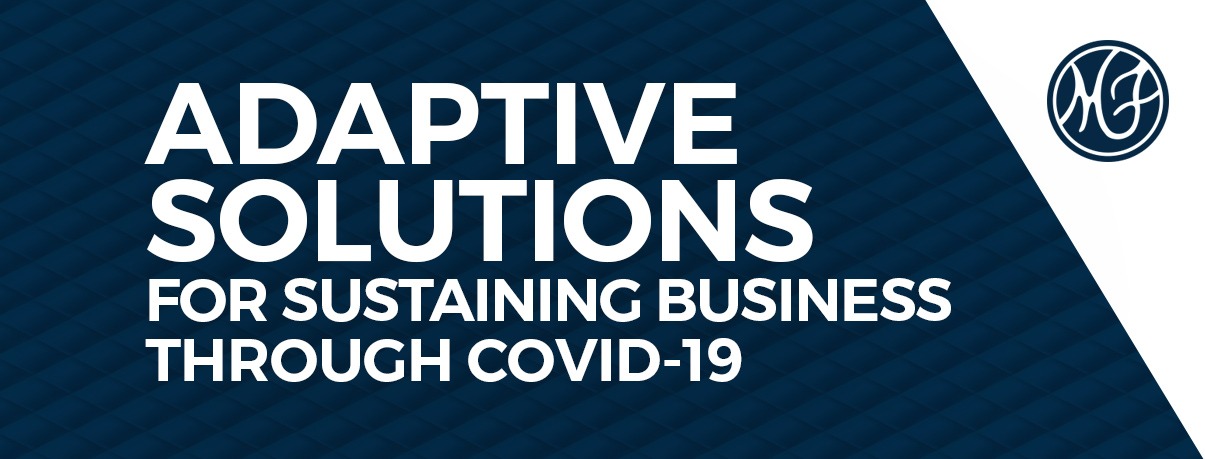Factors for Purchase Order Financing, Added Credit Protection, and Risk Management
The economic impact of COVID-19 is now being felt across every industry, region and company in the U.S. The pandemic has touched nearly every business in significant ways, no matter their size or specialty. However, airlines (along with travel overall), retail, cinemas, theaters, restaurants, bars and hospitality were especially hard hit.
Unfortunately, consumer spending, which accounts for more than two-thirds of U.S. economic activity, dropped an actual 10.5% (34.6% on an annualized basis) during the second quarter. Purchases of consumer goods bought at retail fell by 4.5%, with durable goods—items expected to last three or more years—dropping 1.5% and nondurables down 5.9%.


Retailers’ creditworthiness may be one of the biggest hurdles for brands to overcome during the pandemic. In fact any brand without credit protection in the second half of 2020 and next year should be worried.
One of the largest drops in retail categories was in sales of clothing since workers were not venturing to the office and children were not attending school: overall spending on clothing was down 19%, according to the Bureau of Economic Analysis (BEA). Several retail chains have declared bankruptcy since the pandemic began including JC Penney, the parent company of Men’s Wearhouse, Brooks Brothers, Neiman-Marcus, J. Crew Group and several others.
“Retailers’ creditworthiness may be one of the biggest hurdles for brands to overcome during the pandemic. In fact any brand without credit protection in the second half of 2020 and next year should be worried,” says Daniel R. Milberg, President of Milberg Factors, Inc.
Companies are now facing greater exposure to customers who are in financial difficulty or close to bankruptcy. In these difficult economic times, a company’s accounts receivables can be the most vulnerable part of its balance sheet regardless if the company is small or large because customers may be in shaky financial straits and may have difficulty paying their their bills. Most companies insure their equipment, their plant and their other fixed assets. However, many fail to secure their receivables, which can represent on average 40% to 45% of their assets. As a result, if customers declare bankruptcy, suppliers may be caught off guard.


The advantage for firms to work with Milberg is that we have the financial strength our clients seek without the bureaucracy they want to avoid.
One way that companies can protect their sales ledgers is to purchase credit insurance policies. These policies are used to protect the owners against the possibility that their customers declare bankruptcy and leave the company with unpaid invoices. However, obtaining this coverage now for both small- and middle-market business has become much more difficult as the volume of claims has increased significantly. In addition, policies often come with high deductibles. Brands cannot afford to be exposed to bad credit from a retailer. In the current environment, selling to a retailer with bad credit could be disastrous for a brand.
Advantages of Invoice Factoring
The current volatile credit environment has led many vendors to re-think risk mitigation for what is often their largest asset, accounts receivable. Thankfully, factoring can help companies to protect themselves from the risk of their customers not paying. It’s a great solution for credit coverage, and certain factoring arrangements can also help to smooth out a company’s cash flow.
There are two main types of factoring: advance factoring and collection factoring. In an advance factoring relationship, the factor provides all the basic elements of a traditional factoring relationship—credit approval/protection, collections and bookkeeping—and also allows the client to borrow funds against the factored receivables, typically up to a specified percentage of receivables. In this way, factor financing ensures that the business owner has a steady cash flow and enough working capital to manage daily operations. A collection factoring relationship includes credit review and approval, collections and bookkeeping, but does not involve borrowing.
Finding the Right Fit
At Milberg Factors, our credit analysts review and analyze the credit strength of our clients’ customers, establish customer credit lines and grant customer credit. When an approved account goes bankrupt or is deemed uncollectable, Milberg absorbs the credit loss and reimburses the client. “The advantage for firms to work with Milberg is that we have the financial strength our clients seek without the bureaucracy they want to avoid. When an approved account is financially unable to pay its bills due to bankruptcy or other financial impediment, we pay the client,” said Daniel R. Milberg, President of Milberg. “Thus our clients are able to reduce or eliminate bad debt expenses.” Clients can also reduce their overhead by outsourcing collections and receivables management.
Looking Ahead
The future of retail is still precarious. Many retailers closed their stores at the outbreak of the pandemic, which severely reduced their revenue and cash flow. Some retailers have demanded extended terms on orders and have even cancelled orders. There have been many retail bankruptcies. The brands that will ultimately survive will be the ones that remain flexible, stay on top of shifting styles and trends, and respond to their customers’ changing needs and desires. Those that come out ahead will also have a flexible, supportive and nimble factoring and financing partner like Milberg Factors with a vested interest in their clients’ success. This volatile credit environment has certainly given pause for vendors to re-think their risk mitigation strategy for what is typically their largest asset, accounts receivable. Obtaining factor credit protection and financing will be crucial for many companies to thrive in these challenging times.
CONTACT
For more information about Milberg Factors, Inc., please contact Daniel R. Milberg at (212) 697-4200, David M. Reza at (818) 649-7587, or Ernest B. White at (336) 714-8852, or email us at info@milbergfactors.com.








